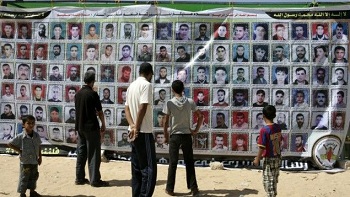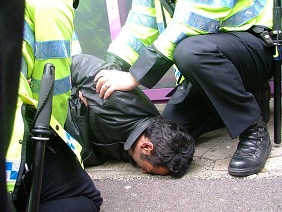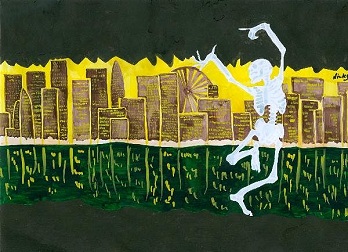Mass Palestinian Prisoner Hunger Strike
On April 17, about 1,600 Palestinian prisoners began open-ended hunger strikes. More on that below.
Palestinians face hellish conditions in Israeli prisons. They endure torture, deprivation, isolation, intimidation, and denial of basic rights. Administrative detainees are held indefinitely without charge or trial. Children young as 10 are treated like adults. So-called security prisoners are isolated punitively for extended periods. All Palestinian prisoners suffer overcrowding, poor ventilation and sanitation, lack of proper clothing, inadequate food in terms of quality, quantity, and conformity to dietary requirements, and poor medical care. They also have limited or no access to family members and counsel. They get wooden planks with thin mattresses and filthy blankets. They suffer winter and summer weather extremes. The Addameer prisoner support group calls overall conditions "appalling." Palestinians "are almost completely cut off from the outside world." Children are treated like adults. Women are treated like men. Toilets inside cells often back up through drains. Essential hygiene necessities like toothpaste, clean clothes, and cleaning products are denied. Medical negligence is common. Required surgery may take years to get if at all. Medications only are given to treat disease. "Sick detainees inside Israeli prisons live on painkillers and tranquilizers," says Addameer. Many released prisoners face chronic health problems. Often, early death results. Israeli treatment violates international law. Doing so is official Israeli policy.



























